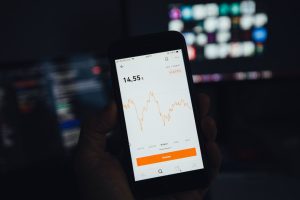The forex market is one of the most liquid and largest markets in the world. It is a global marketplace where various currencies are traded 24 hours a day, five days a week. The forex market is affected by a wide range of factors, including economic indicators, geopolitical events, and consumer confidence. In this article, we will explore how consumer confidence affects the forex market.
Consumer confidence is a measure of how optimistic or pessimistic consumers are about the state of the economy. It reflects their perception of the current economic climate, their own financial situation, and their expectations for the future. Consumer confidence is measured by surveys that ask people about their spending habits, job security, and overall outlook on the economy.
Consumer confidence is an important indicator for the forex market because it can have a significant impact on the value of currencies. When consumers are confident about the economy, they tend to spend more money, which can stimulate economic growth. This increased spending can lead to higher inflation, which in turn can lead to higher interest rates. Higher interest rates can make a currency more attractive to foreign investors, which can lead to an increase in demand for that currency and a rise in its value.
On the other hand, when consumers are pessimistic about the economy, they tend to hold onto their money and spend less. This can lead to a decrease in economic growth and lower inflation. Lower inflation can lead to lower interest rates, which can make a currency less attractive to foreign investors. This can lead to a decrease in demand for that currency and a decline in its value.
Consumer confidence can also affect the forex market indirectly. For example, if consumers are confident about the economy, they may be more likely to invest in stocks, which can lead to a rise in the stock market. A rise in the stock market can lead to an increase in demand for the currency of the country where the stock market is located. This can lead to a rise in the value of that currency.
Similarly, if consumers are pessimistic about the economy, they may be more likely to invest in safe-haven assets such as gold or the US dollar. This can lead to an increase in demand for these assets and a rise in their value. This can also lead to a decline in the value of other currencies, including those of emerging markets.
In addition to affecting the forex market, consumer confidence can also affect the overall economy. When consumers are confident, they tend to spend more money, which can lead to higher economic growth and job creation. This can lead to a positive cycle where higher economic growth leads to higher consumer confidence, which in turn leads to even higher economic growth. Conversely, when consumers are pessimistic, they tend to spend less money, which can lead to lower economic growth and job losses.
In conclusion, consumer confidence is an important indicator for the forex market. It reflects the perception of consumers about the economy and can have a significant impact on the value of currencies. When consumers are confident, they tend to spend more money, which can lead to higher economic growth and a rise in the value of a currency. Conversely, when consumers are pessimistic, they tend to spend less money, which can lead to lower economic growth and a decline in the value of a currency. As such, it’s important for forex traders to keep an eye on consumer confidence indicators and to factor them into their trading decisions.





